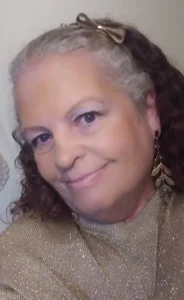 I work at an alternative school for middle and high school students. To say my training in Youth Mental Health First Aid (YMHFA) is helpful would be an understatement. It’s so useful, in fact, that I’ve taken the training twice — I liked it so much the first time, I wanted to make sure I thoroughly understood the program.
I work at an alternative school for middle and high school students. To say my training in Youth Mental Health First Aid (YMHFA) is helpful would be an understatement. It’s so useful, in fact, that I’ve taken the training twice — I liked it so much the first time, I wanted to make sure I thoroughly understood the program.
One of my main takeaways from YMHFA training is how important it is to listen to our students and to let them know someone cares about them.
In my time as an educator, two stories stand out. Each student had a rocky start in the classroom, but by utilizing my training, I was able to react and encourage in a way that made them feel safe to talk and feel heard.
I recall one high school student who got extremely upset one day about a month after school started. He threw his laptop on the ground and left the classroom. He was typically a leader among his peers, often inspiring other kids to work hard.
One of my responsibilities is to follow any student who leaves the classroom. The 15-year-old was sitting at a nearby picnic table, so I went and sat with him. He let his guard down and shared how his mother was an alcoholic and had abandoned him as a child. He said he had to take care of his younger siblings — in addition to his own child. Then he started to cry and said, “I’m just a kid myself. Who’s going to take care of me?”
My heart went out to him. I touched his arm and said I would be there to listen to him whenever he needed to talk. I was very touched that he could be so vulnerable and cry in front of me.
The student appreciated how I took the time to listen to him and show him I cared about his feelings and situation. There were at least two other times he came to me that school year with personal concerns. I shared what he told me with our school’s guidance counselor. I heard the next school year that he was helpful to his peers and doing well in school, continuing to inspire others to do their best work.
Another time, a new high school student announced to me he wasn’t going to do any schoolwork and wrote curse words all over on his binder. It was the first day of school.
A couple weeks later, he had to write an essay as part of court retribution. He asked me to read it.
In the essay, he had to write three life goals. The first goal was to not move around when he grew up. It seemed like his family moved many times, and he was unhappy about it.
The second goal was to one day have a wife and children he could “love like [he’d] never been loved.”
His third goal was to become a welder, because he heard it was a well-paid trade. He figured the pay and stability would keep him out of trouble. I was so touched I almost cried. I thanked him for trusting me to read his essay.
Without using the young man’s name, I shared the young boy’s story on my personal Facebook page. A lady from my church brought me her husband’s business card that Sunday. Her husband was a welder and knew about a welding apprenticeship program where the young man could be paid while training. I gave the student the business card the next morning. He literally jumped up and down with excitement!
From that morning on, he came up to me with a smile and asked what he could do to help me.
Those two experiences proved to me the key to building self-esteem and hope in young people is to listen and show compassion. YMHFA shares how and why it works, and teaches you how to apply those techniques in real-life situations.
Interested in starting or continuing your mental health journey? Become a certified Youth First Aider and Instructor and #BeThe1in15 in your community.
MHFA has trained more than 4 million Mental Health First Aiders! Help us reach millions more by using #BeThe1in15 to join the conversation and raise awareness.